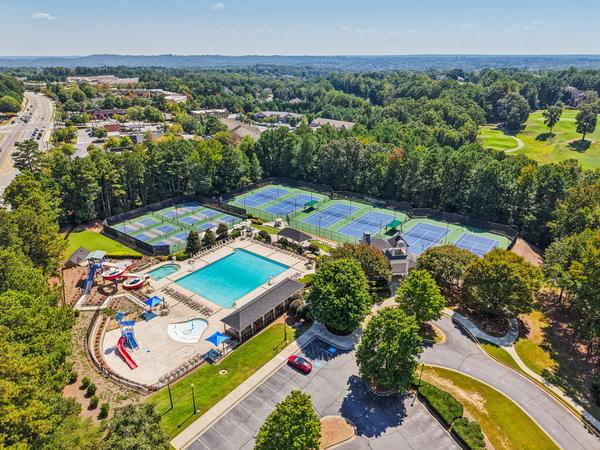Creating a North Georgia Garden in Dacula

Creating a North Georgia Garden in Dacula: Tips for Local Flora
Nestled in the heart of Georgia, Dacula offers a unique opportunity for gardeners to create thriving landscapes filled with local flora. With its distinct climate and soil conditions, Dacula is a haven for native plants. In this article, we will explore the best practices for creating a North Georgia garden in Dacula, focusing on local flora that will flourish in your outdoor spaces. From soil preparation to plant choices and sustainability tips, this guide aims to be your go-to resource for a blooming garden paradise.
Understanding Dacula's Climate and Soil
Before planting your garden, it's crucial to understand the local climate and soil conditions in Dacula. Georgia experiences a humid subtropical climate, characterized by hot, humid summers and mild winters. This climate is favorable for a wide variety of plants, but understanding local nuances can help you make the best choices for your garden.
The Importance of Soil Testing
Conducting a soil test is an essential first step in garden planning. Soil in North Georgia typically ranges from acidic to slightly alkaline, and knowing the pH and nutrient composition of your soil will guide your decisions on which local flora to plant. Soil testing kits are available at local garden centers or through the University of Georgia's Cooperative Extension Office.
Climate Considerations
The hardiness zones in Dacula range between 7a and 8a. Selecting plants that thrive within these zones will ensure that they can withstand seasonal temperature fluctuations. Consider perennials and deciduous plants that are well adapted to the local climate.
Selecting Local Flora for Your North Georgia Garden
Choosing the right plants is pivotal to your garden's success. Embracing native plants not only ensures better survival rates but also promotes local biodiversity. Here are some popular choices for a North Georgia garden in Dacula:
Popular Native Plants
- Georgia Aster (Symphyotrichum georgianum): Known for its vibrant purple flowers, this plant adds a splash of color in the fall and is perfect for attracting butterflies.
- Eastern Red Columbine (Aquilegia canadensis): This hardy perennial features striking red and yellow flowers that are appealing to both hummingbirds and gardeners.
- Southern Magnolia (Magnolia grandiflora): This majestic tree offers stunning white blossoms and evergreen foliage, providing year-round beauty.
Ornamental Grasses and Shrubs
Ornamental grasses and shrubs offer texture and structure to your garden. Consider options like the Fountain Grass (Pennisetum alopecuroides) and Yaupon Holly (Ilex vomitoria) for low-maintenance yet visually appealing additions.
Designing a Sustainable Garden
Sustainable garden design is an integral part of creating a North Georgia garden. Focusing on eco-friendly practices will not only benefit the environment but also reduce maintenance efforts and enhance the longevity of your garden.
Water Conservation Strategies
Implementing efficient irrigation methods is key. Consider a drip irrigation system or rain barrels to minimize water waste. Additionally, choosing drought-tolerant plants will significantly reduce the need for watering.
Composting and Mulching
Creating your compost pile or using organic mulch enriches the soil while suppressing weeds. Organic mulch such as pine straw or shredded hardwood can also help retain soil moisture.
Seasonal Planting and Maintenance Tips
Successful gardening requires attention to the changing seasons. From planting schedules to seasonal garden maintenance, adhering to these practices can maximize your garden's potential.
Spring and Summer Preparation
As temperatures rise in spring, it's a great time to plant annuals and perennials. Ensure that your soil is adequately prepared, and begin implementing pest control measures. Summer is ideal for tending to lawn care and pruning flowering plants to encourage new blooms.
Fall and Winter Care
Fall is perfect for planting spring-blooming bulbs and enhancing your soil with nutrients. Winter maintenance involves insulating plants with mulch, protecting sensitive species from frost, and planning for the upcoming spring rejuvenation.
Frequently Asked Questions
What native plants are best for attracting pollinators in Dacula?
Local flora like the Georgia Aster and Eastern Red Columbine are excellent choices for attracting pollinators such as butterflies and bees.
How can I create a low-maintenance garden in North Georgia?
Utilize native plants, efficient irrigation systems, and organic mulching materials. These strategies reduce maintenance while encouraging plant health.
When is the best time to plant in Dacula?
Spring and fall are optimal planting seasons in North Georgia, as they offer more temperate and conducive conditions for new plantings.
By embracing these strategies and tips, you can create a flourishing and sustainable North Georgia garden in Dacula. Whether you're a seasoned gardener or a novice, incorporating local flora will ensure that your garden remains vibrant and thriving year-round.
Categories
- All Blogs (537)
- Achasta Golf Community (72)
- Cleveland, GA (39)
- Dacula, GA (34)
- Dahlonega GA (110)
- Dawsonville, GA (34)
- Gainesville, GA (38)
- Gold Peach Realty (5)
- Helen, GA (39)
- Home Buying Tips (17)
- Home Décor And Interior Design (7)
- Home Improvement Tips (15)
- Home Selling Tips (20)
- Homes For Sale (45)
- Lake Lanier, GA (61)
- Local Events (13)
- Local Guides (16)
- Mortgage And Finance Tips (23)
- North Georgia (8)
Recent Posts










GET MORE INFORMATION

